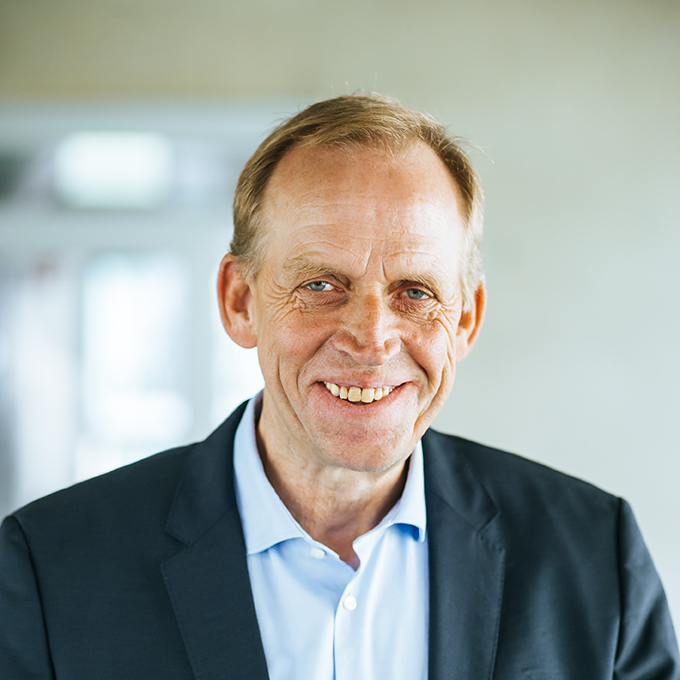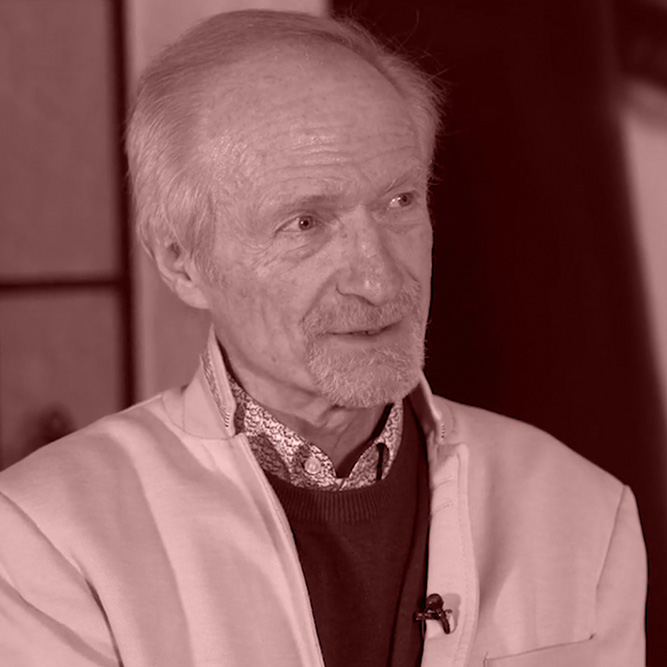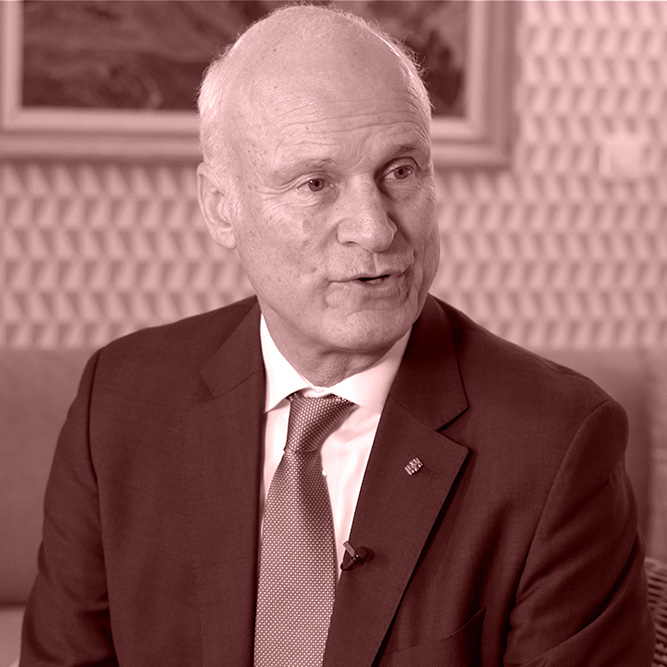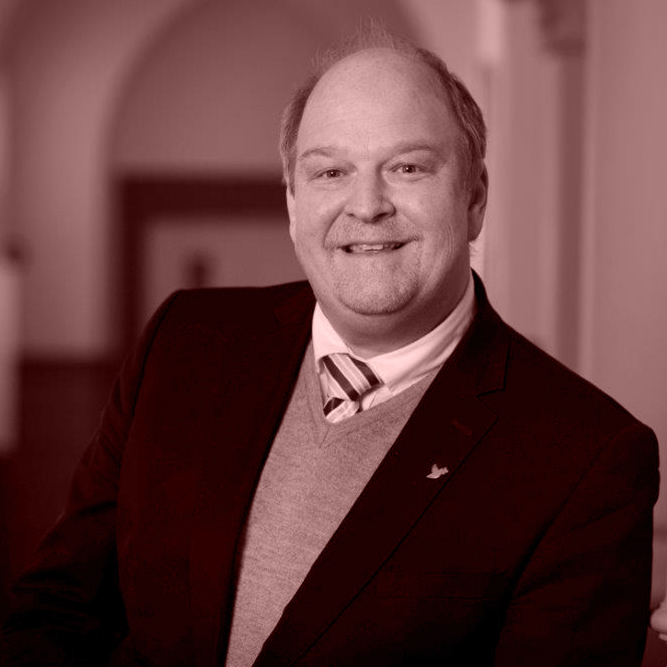Happiness
Marc-Stefan Brodbeck in conversation with Prof. Dr. Herbert Schaaff
When did you cross to the topic of happiness in your career?
During my time as an assistant professor at RWTH Aachen University, the “limits to growth” were being discussed intensively at the time. It led to many deep conversations about the quite sensible and sustainable goal of economic activity beyond constant growth. Following ancient philosophers, we came across the topic of happiness, which fascinated me from the very beginning.
Happiness can be experienced individually by everyone. Who or what is happiness for you?
Happiness has two meanings in the German language, the first being “lucky coincidence,” in the sense of winning the lottery. Personally, I associate happiness with the second meaning as a variously long-lasting euphoric emotional state and/or a long-lasting, sustained satisfaction, well-being, if possible, with one’s entire life. As examples of the many facets of happiness, I think of my family, my wife and my four children, or even climbing a mountain peak that is challenging for me.
As we all know, we can’t buy happiness – so how do we find it?
We find happiness by first thinking about our own needs and desires. And, of course, it makes sense to develop a life plan for ourselves that is as flexible as possible. That means: What do I want to achieve with whom, by when, with what priority and why? The reflexion of one’s individual achievements with regards to these questions ultimately feed happiness and unhappiness – and the two poles will undoubtedly alternate again and again.
What surprised/astonished/inspired you the most in terms of happiness?
How much has been thought and written on this subject since antiquity. That it is obviously one of the central themes of human meaning. And that it is fun to deal with it over many decades, especially from a science perspective. But what is and remains exciting for me is that quite a lot of people obviously live without any orientation towards their own happiness.
Why should we also talk about happiness in a business context?
On the one hand, happiness itself is part of a business. In a market economy, everything that is at least partly for sale is made for sale. Think of happiness literature, happiness consulting or tourism. Moreover, it is beneficial for any company to ensure that its employees are satisfied with the respective task content, the working environment, the colleagues and, above all, their managers. At best, even more than that. The “optimal” use of work, so to speak, between the extremes of underload and overload – and the corresponding avoidance of boreout and burnout – can also even bring about real experiences of happiness here and there. Job satisfaction and happiness should always have productivity- and performance-enhancing effects. Based on this, the connection between employee commitment and customer satisfaction could also be proven.
How do business and happiness belong together?
Well, it’s been proven that money doesn’t really make people happy or happier above a certain income level, even if there are arguments about this every now and then. But without a certain level of material prosperity, which is undoubtedly also money-based, it is difficult to truely be happy and satisfied. Most studies on this subject assume that no additional happiness is generated by additional income above an annual income of about 70,000 euros. The actual amount is insignificant here. The fact of the diminishing marginal utility, also of money, has been known for quite some time and this phenomenon has certainly been observed by everyone. Already in 1854, the German economist Herman Henrich Gossen dealt with this topic. By the way, step-by-step salary increases are definitely preferable to a one-time, equivalent increase in terms of happiness – you are actually happy more than once.
Does happiness also have something to do with leadership? Do leaders have an influence on the happiness of their employees?
Yes, definitely! The quality of the work depends very much on the leader. For example, with regard to leadership style, role model function or feedback behavior. It does not come by chance that the (bad) manager is the most important reason for people quitting their jobs – up to 50% of job terminations can be attributed to this. I personally prefer happiness-oriented leadership and base my approach on Dieter Jaehrling’s book title “Fröhlich führen”. However, I have to admit that this style does not succeed in every professional situation.
How does happiness effect employee satisfaction?
Employee satisfaction is a very ambivalent field. If employees are too satisfied, there is definitely a risk of complacency, which can be associated with a lack of innovation, a weakening willingness to perform, and even lethargy. In this context, I therefore prefer to speak of employee commitment and employee engagement. Ensuring this is the task of the manager on the one hand, but also of the employees themselves. This is the only way to safeguard performance and at the same time increase employee loyalty.
What do you say – how does happiness work in the company?
The same way as in normal life. If we see meaning in what we do – today we call this “purpose” – we are satisfied. If we feel good about what we are doing and also with whom (colleagues) or for whom (manager and company) we are doing it, and if skills, knowledge, needs and requirements of the job and the work content fit together, then the basis for happy working is laid.
Some companies employ Happiness Managers or similar functions. What do you think of this?
In my view, this is certainly more of a sensational marketing gimmick or an endeavored part of an employer branding strategy, but probably as helpful as the legendary fruit basket. Such a topic, a happiness-oriented approach, can by no means be delegated down to one person, but must rather be an integral part of a corporate culture. Implementing this, however, requires a lot of intelligence, a sense of proportion and, above all, a lot of time.
Can happiness be measured?
Yes, in brain research, feelings of happiness can actually be made visible in a computer tomograph. In longer-term happiness or satisfaction research, one usually works with surveys, e.g., with the simple question “How happy are you, all things considered, at the moment?” (scale 1 = very unhappy, to scale 10 = very happy). In Germany, the result value – varying from region to region – has been between 7.0 and 7.5 for many years. Since these surveys have been conducted regularly for decades, it is also possible to see changes.
Thinking the other way around: What makes you really unhappy?
It doesn’t happen often, but I find it extremely difficult to work with ignorant people.
One last question in conclusion: What are the major challenges in your current role?
My company is currently being put up for sale by the shareholder. Accompanying this process from the HR perspective is a new and exciting, but also exhausting challenge.
At the university, I am always trying to get young students interested in strategic HR management – this succeeds quite often and that makes me in fact a bit happy(er).
Dear Prof. Schaaff, thank you very much for your fascinating view on this topic!
Prof. Dr. Herbert Schaaff
More interviews
Communication
In conversation with Prof. Gernot Schulz
Dr. Hans Schlipat talks to Professor Gernot Schulz about his experiences as a musician, conductor and consulting entrepreneur in the shaping of management organisations.
Credibility
In conversation with Carl-Ludwig Thiele
Dr. Henrik Räwer talks to Carl-Ludwig Thiele, former board member of the Deutsche Bundesbank, about the important role of credibility.

Marc-Stefan Brodbeck
Tel.: +49 711 75 85 88 18 | Marc-Stefan.Brodbeck@rochusmummert.com
Rochus Mummert digital GmbH | Kronprinzstrasse 14 | 70173 Stuttgart





